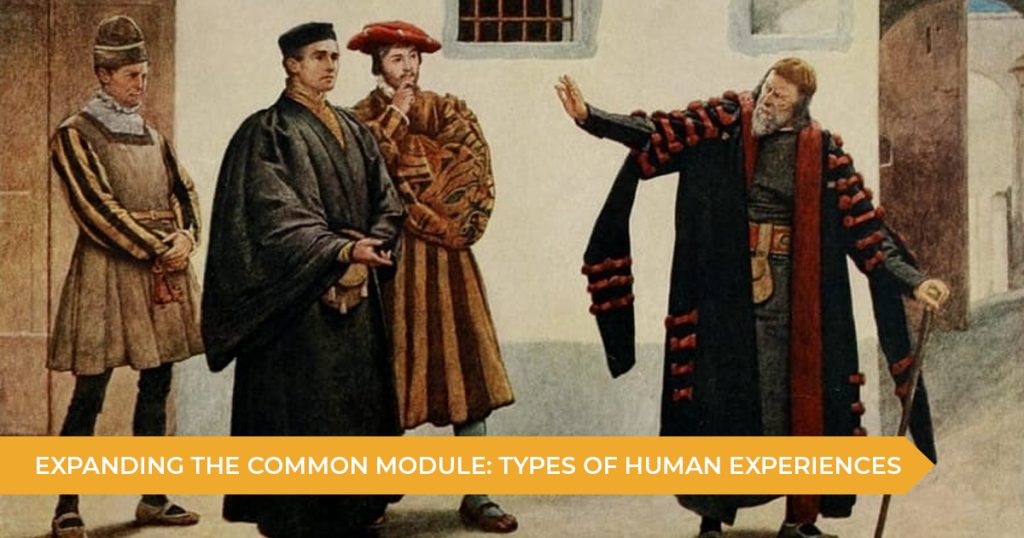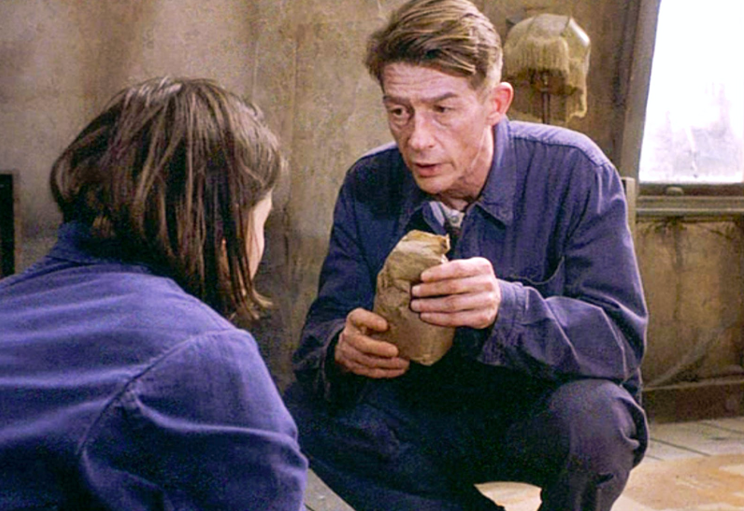What are the different types of Human Experiences we can cover in English Advanced?

Let us continue our discussion of the HSC Advanced English Common Module: Texts and Human Experiences, by examining the different types of human experiences.
This list is not exhaustive, and we will cover more examples in class. However, they will give you a good preliminary understanding of how to approach the different categories of human experiences.
Individual Human Experiences
In our first blog post, we discussed the official NESA module on the Common Module: Texts and Human Experiences, and identified some important points. The first point we noted was that human experiences can be divided into individual and collective human experiences. What does this mean?
To put it simply, there are experiences we go through by ourselves and there are those that we go through with other people as a group. Individual human experiences are personal experiences; from the beginning to the actual process and the final results.
Now, consider some examples. There are individual experiences that we encounter naturally as part of our growing process, such as the experience of going to school and making meaningful connections with friends. On the other hand, there are individual experiences that we deliberately seek to achieve such as the thrill of sky-diving or signing up for singing and dancing lessons. While some actively expose themselves to as many experiences as possible, others limit their experiences because they are more comfortable in a familiar setting. There is no right or wrong, and both are examples of individual human experiences.
Just like how we might seek different types of experiences in different ways (or rather the lack thereof) the results of such experience can also vary between individuals. A lot of factors – personal context, personalities, preferences, values, and more – will come into play in determining how we begin the experience process itself, to the results we take away from it.
Quiz Time
1. Can you name some examples of ‘natural’ individual human experiences?
2. Can you name some examples of ‘deliberate’ individual human experiences?
3. Consider within the context of your prescribed text, what are some examples of individual human experiences?
Collective Human Experiences
By extension, collective human experiences are any experiences that we go through together in a group unit. From the local sports team, to the House of Representatives or a certain cultural group, collective human experiences are unavoidable and play a powerful role in influencing us as individuals.
Let us have a think about it within the context of the prescribed text The Merchant of Venice. Within this play, the human experience of racism is a central idea.
Shylock was a Jew and the embodiment of Jewishness as Shakespeare and his audience would recognise them when the play was written in the late 1590s. The idea of anti-Semitism and sentiments is very much a collective product. Likewise, the injustices committed against the Jewish community by Nazi Germany during World War II is also a collective human experience for many people.
Many experiences may start as collective human experiences, but they will soon generate lasting impacts on an individual. Of course, an argument in the reverse can also be made – they can be interdependent.
RELATED: Glossary of HSC English Advanced Terms
Psychological Human Experiences
To further categorise the human experience types, let us think about psychological human experiences.
This is an abstract idea which is linked to our psyche. To define it broadly, anything we experience mentally and psychologically in our own heads, without any physical involvement during the actual ‘experience’ process, can be classified as a psychological human experience.
For example, within the prescribed text of Past the Shallows, the issue of addiction is clearly one of the main psychological human experiences. This would be an individual psychological human experience. To take it further, advancements in modern medicine has created drugs that can alternate a person’s perspective on reality. Alternatively, something as accessible as alcohol can also do the same.
Emotional Human Experiences
Perhaps what is intrinsically linked to the idea of psychological human experiences is the idea of emotional human experiences. Depending on what we are seeing, hearing, or doing, we experience a broad range of emotions every single day.
To get us started, consider these six basic human emotions identified by psychologist Paul Eckman:
– Happiness,
– Sadness,
– Fear,
– Disgust,
– Anger, and
– Surprise.
This is not a comprehensive list, and in reality, it is often more complicated than that. A recent study suggests that there are far more basic emotions than previously believed and, in a study, published in Proceedings of National Academy of Sciences, researchers identified 27 different categories of emotion. We can also experience a combination of emotions at the same time.

Winston and Julia in the film adaptation of 1984
When you are thinking of emotional human experiences, it is important to think about how certain emotions may influence the way we act and the lasting impacts it can have on us. Within the content of your prescribed text, explore how emotions played a part in the characters’ lives, and the way they have responded to the key events.
Let us use Nineteen Eighty-Four: A Novel as an example. How do you think Winston felt when he first met Julia? What kind of emotions did he experience? Joy? Fascination? Hope? Then, have a think about how these emotions affected his subsequent decisions such as rebelling against Big Brother.
RELATED: How To Manage Time in the English Advanced HSC Exams
Intellectual Human Experiences
In direct contrast, intellectual human experiences are linked with ideas of logic, analysis and objectivity. Instead of allowing emotions to dictate how we act, we are making decisions based on reason after a series of judgements. Some examples include changes in our ideas, beliefs, scientific advancements, or gaining a Master’s degree and PhD.
Once again, there is no right or wrong to the two approaches. Depending on the situation, both have their own merits. Depending on the individual, they may have varying degrees of influence on the person.
Quiz Time
1. Can you list some ways we experience emotional human experiences?
2. Can you list some ways we experience intellectual human experiences?
Results and Impacts of Human Experiences
Since we have so many different types of human experiences, it is only natural that we also have a wide range of impacts and results derived from these experiences. It is important to understand and appreciate that the human experiences process and result can be positive or negative, and that it can occur on an individual or collective level.
On an individual level, human experiences can:
– Challenge our assumptions about the world and people around us,
– Make us react in a certain way to a certain situation,
– Encourage us to ingest new ideas for self-strengthening and improvement,
– Teach us new behaviours and knowledge,
– Reflect and build on an accumulation of experiences, and more.
On a collective level, human experiences can:
– Make groups collectively adapt and develop new behaviours,
– Influence changes in wider society, and more.
Quiz Time
1. What are some of the individual impacts and results in your prescribed text?
2. What are some of the collective impacts and results in your prescribed text?
Excel in English this year with the help of Talent 100. Learn more about our Advanced English course structure, 1-1 tutorials, weekly writing tasks and how we can prepare you for the HSC with face-to-face and online class options. Click here for more information.
Written by our Talent 100 HSC English Advanced Mentor, Joanne Wu.




